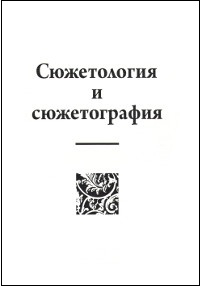 |
|
||||||||||||
|
Institute of Philology of
the Siberian Branch of Russian Academy of Sciences |
|
||||||||||||
|
|||||||||||||
DOI: 10.25205/2410-7883 Roskomnadzor certificate number Эл № ФС 77-84792 | |
| Syuzhetologiya i Syuzhetografiya | |
|
The journal «Syuzhetologiya i syuzhetografiya» (English title «Plot Description and Analysis») is published by the Institute of Philology of the Siberian Branch of the Russian Academy of Sciences. The need for such a publication arose in the early 2000s, during the work on the «Dictionary of Plots and Motifs of Russian Literature», carried out by a team of literary scholars from the Institute of Philology of SB RAS under the leadership of Corresponding Member of the RAS Elena K. Romodanovskaya and Professor Valery I. Tyupa. The dictionary was one of the first attempts to systematize the plots of Russian literature, including ancient and modern, while in folklore studies the problematization of the methodological basis for plot indexes has a rich background. The journal was founded in 2013 and is currently published 4 times a year. It was first edited by corresponding member of RAS Igor V. Silantev, then, since 2016, by Ph.D. Igor E. Loshchilov, currently (since 2023) - by Doctor of Philology Elena V. Kapinos. The key materials of the journal are devoted to the study of the theory and history of the plot in two aspects. The first - Plot Analysis - is an independent and relevant literary direction, fundamentally substantiated in the works of A.N. Veselovsky, V.Ya. Propp, V.B. Shklovsky, as well as representatives of the Daugavpils literary school. The second - Plot Description - deals with the principles of fixation and classification of plots, fables and motives, as well as the rules of motive compatibility, and includes modern practices of compiling plot dictionaries, thesauruses and electronic collections. Priority in the journal is given to materials on the theory of plot in literature and art, the history of world and Russian literary plots and motifs, and problems of compiling plot dictionaries. Since the plot is one of the main components of the narrative, the journal's themes also correspond to materials on narratology, as well as the analysis of various kinds of intertexts that influence the selective use of certain plots and motifs in fiction and local literature. Over the past decade, the journal has published articles on the theory and history of plots by researchers such as Yu.N. Chumakov, Yu.V. Shatin, L. Szilard, L.G. Panova, O.D. Burenina-Petrova, A.K. Zholkovsky, Yu.K. Shcheglov, V.I. Tyupa, E.G. Paderina and many others. The journal publishes scientific materials in the following areas:
There is no publication fee for the authors. The journal does not publish any commercials. All papers submitted to the journal are subject to mandatory double-blind peer-review. Media: the journal is an electronic online publication with a permanent address (ISSN 2713-3133). The journal is registered with Roskomnadzor of the Russian Federation (registration number: electronic series No. FS77-84792 dated February 17, 2023). Publisher: Institute of Philology of the Siberian Branch of the Russian Academy of Sciences (630090, Novosibirsk, Nikolaeva St., 8). The journal is registered and has a page in the RSCI database. Editorial phone number: 8-383-3304772.
|
 |
Institute of Philology Nikolaeva st., 8, Novosibirsk, 630090, Russian Federation +7-383-330-15-18, ifl@philology.nsc.ru |
© Institute of Philology |



